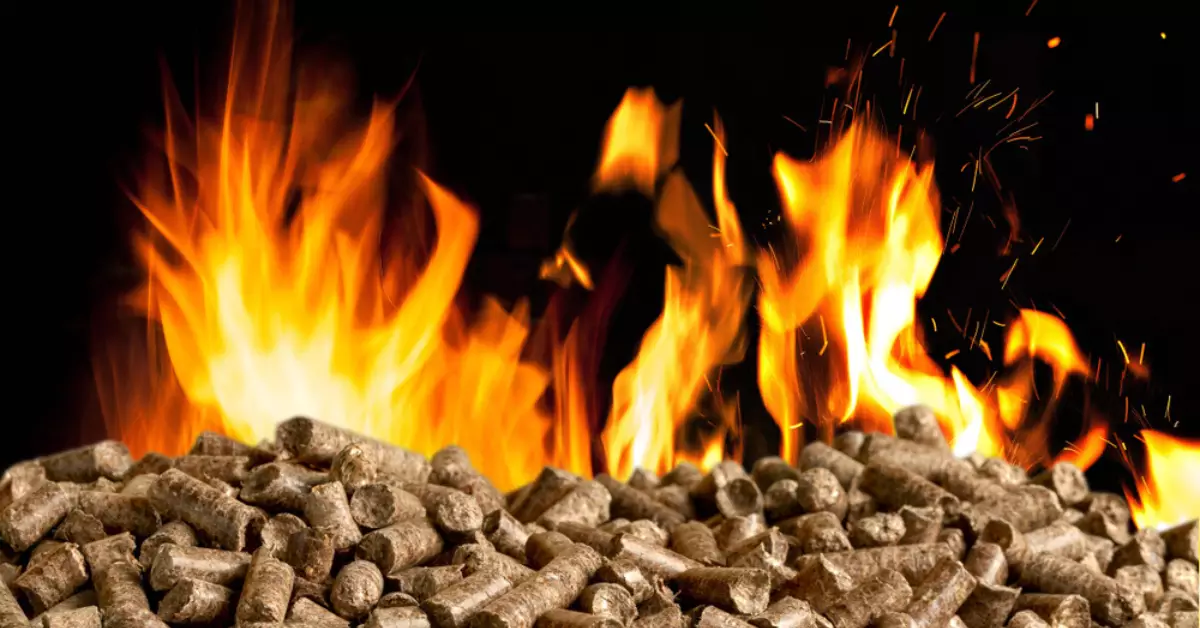As we search for more sustainable and cost-effective solutions for home heating, two options frequently come into the conversation: pellet heat and oil heat. While they both serve the same purpose, they utilize different types of fuel, have different impacts on the environment, and carry distinct costs.
Pellet heat relies on small pellets made from compressed biomass, often wood or agricultural waste. These systems are praised for their environmental benefits, as they burn cleaner and utilize waste products. On the other hand, oil heat is a traditional method of heating, using oil-fired boilers. Oil heating systems have been around for a long time and are renowned for their reliability and powerful heat output.
For many homeowners, the decision between these two heating systems ultimately comes down to cost. But which one is cheaper – pellet heat or oil heat? Let’s explore.
Cost Comparison: Pellet Heat Vs Oil Heat
Upfront Costs of Pellet and Oil Heating Systems
When considering the cost of a heating system, one can’t overlook the initial investment. Pellet stoves and boilers usually have a higher upfront cost compared to oil heating systems. While pellet systems can cost anywhere from $1,500 to $3,000, oil systems tend to range from $1,000 to $2,500. Installation costs can also vary, depending on the complexity of the system and the condition of your home.
Operating Costs: Pellet Heat
The operating cost of a pellet system depends on several factors, including the price of pellets and the efficiency of the stove or boiler. As of 2023, the average price for a ton of pellets is around $250. Considering an average household may use 5-7 tons per heating season, this amounts to an annual pellet cost of $1,250 to $1,750.
Operating Costs: Oil Heat
The operating costs for oil heat are primarily determined by the price of oil and the system’s efficiency. The average price for home heating oil in 2023 is around $2.50 per gallon. Given that an average home might use 500-700 gallons of oil per heating season, this leads to an annual oil cost of $1,250 to $1,750.
Factors Influencing the Costs of Pellet and Oil Heat
Fluctuations in Commodity Prices
It’s important to note that the prices of both pellets and oil can fluctuate based on supply, demand, and market conditions. Global events or supply chain disruptions can significantly impact the cost of these commodities, causing prices to vary from year to year.
Efficiency of Heating Systems
The efficiency of a heating system is a key determinant of its operating cost. Modern pellet stoves and boilers can reach efficiencies of over 80%, meaning they convert most of the fuel’s energy into heat. In contrast, oil heating systems typically have efficiencies of 60-70%.
Cost of Maintenance and Repairs
Maintenance and repair costs can also impact the total cost of a heating system. Pellet stoves require regular cleaning and maintenance to ensure efficient operation. While oil systems may require less frequent maintenance, repairs can be expensive due to the complexity of these systems.
Pellet Heat Vs Oil Heat
Method to Calculate Pellet Heat Cost
To calculate the cost of pellet heat, you’ll need to consider the price of pellets, the efficiency of your heating system, and the amount of heat needed to warm your home. This involves multiplying the number of pellets needed by their price and adjusting for system efficiency.
Method to Calculate Oil Heat Cost
Calculating the cost of oil heat involves a similar process. You’ll need to know the price of oil, the efficiency of your system, and your home’s heating requirements. By multiplying the amount of oil needed by its price and factoring in system efficiency, you can estimate your annual oil heating cost.
Environmental Impact and its Influence on Costs
While the direct costs of pellet and oil heating systems are crucial, it’s also essential to consider their environmental impacts. Governments are increasingly implementing regulations aimed at reducing carbon emissions, which can influence the cost of certain heating systems.
Environmental Impact of Pellet Heat
Pellet heat is considered a more sustainable option due to its use of waste biomass and its low carbon emissions. It may also be eligible for government incentives aimed at promoting green energy, which can help offset the cost.
Environmental Impact of Oil Heat
Oil heat produces higher carbon emissions and is dependent on fossil fuels. This can result in additional costs due to environmental regulations and potential carbon taxes.
Additional Considerations When Choosing Between Pellet and Oil Heat
Availability and Accessibility of Fuel
In some regions, it may be easier to find and purchase heating oil, while others may have better access to pellets. The availability of fuel can influence its price and the convenience of a given heating system.
Storage Needs
Pellets require a dry storage area and can take up considerable space, especially if you buy in bulk for the heating season. In contrast, oil is typically delivered and stored in an outdoor tank.
Home Infrastructure Requirements
Installing a pellet system may require modifications to your home, such as installing a venting system. On the other hand, oil heating systems can often be integrated into existing home infrastructures.
Frequently Asked Questions
Are Pellet Stoves Environmentally Friendly?
Pellet stoves are considered environmentally friendly due to their use of waste biomass and their low carbon emissions. However, they do require electricity to operate, so their environmental footprint will depend on the source of your electricity.
Can I Switch from Oil Heat to Pellet Heat?
Switching from oil heat to pellet heat is possible but will require an investment in a pellet stove or boiler and potential modifications to your home.
Which System is More Reliable, Pellet or Oil?
Both systems have their pros and cons. Pellet stoves require regular maintenance but are generally reliable. Oil systems are known for their reliability but can be more susceptible to expensive repairs.
Conclusion
The answer to whether pellet heat is cheaper than oil is complex and depends on various factors, including the current prices of pellets and oil, the efficiency of your heating system, and your home’s heating requirements.
However, if we only consider the operating costs, pellet heat and oil heat are comparable. The key difference lies in the upfront costs, environmental impacts, and additional considerations like maintenance, fuel availability, and storage needs.
Ultimately, the decision between pellet heat and oil heat should be based on a holistic analysis of costs, environmental impacts, and your personal preferences.







